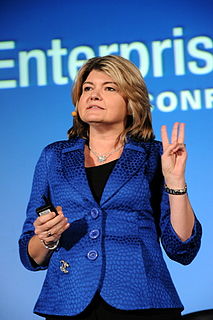A Quote by Vivek Wadhwa
In my first company, Seer Technologies, where I was chief technology officer, we shied away from the media. We watched every word and were guarded in front of journalists.
Related Quotes
Tech stocks were the cubic zirconium of the market. They looked good and were sexy, but they just were a way for the company selling them to make money. That's always going to be transient in terms of the stock market. What's real is that companies have to compete. Technology used well is a great tool to enable that if only because most companies dont use technologies well.


































